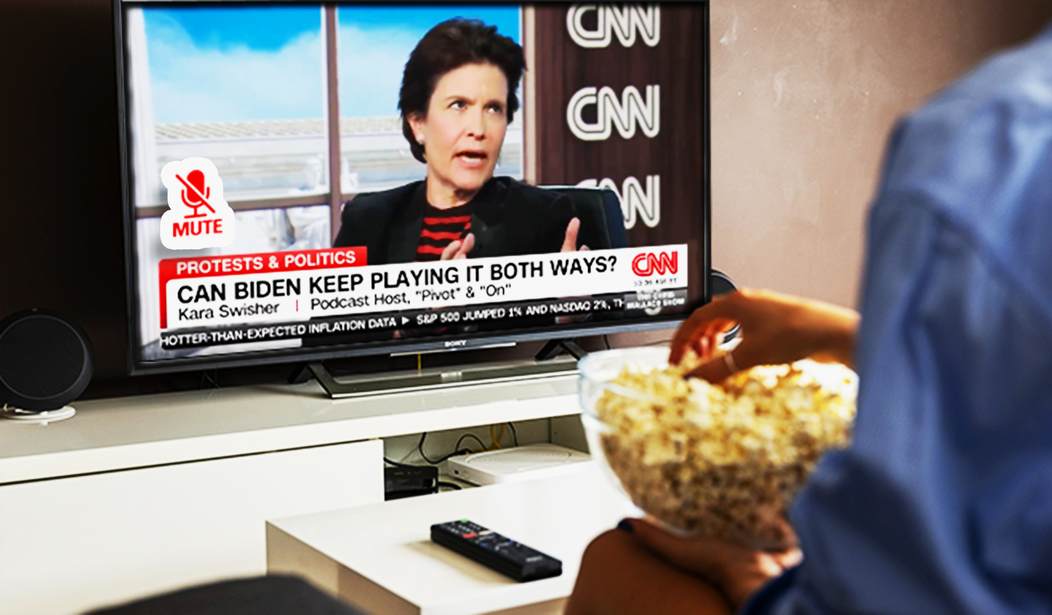I know what you're thinking: That many?
Fresh from the You Reap What You Sow Department comes the latest poll from the Associated Press/NORC on trust in media. Overwhelming majorities of their respondents have moderate to strong concerns over accuracy, bias, gossip, and a raft of other issues. Guess who the AP blames for this sad state of affairs?
Hold that thought for a moment. First, let's ask this: How many of their consumers trust their product?
Although most adults, regardless of age, race or ethnicity, or partisanship, tune into news about elections, only 14% express a great deal of confidence in election-related information they receive from national sources, and 11% say the same about local news media.
In particular, people are worried about the news containing misinformation and amplifying divisions. About half of adults say they are extremely or very concerned about news organizations reporting inaccurate information (53%). Almost as many worry news outlets will report unverified information (47%) or focus too much on divisions or controversies (48%).
Even that understates the problem by focusing solely on the "extremely/very concerned" responses. Those are bad enough; the media has lost half of their audience just on that selection alone. But large numbers of respondents also express that they are "somewhat concerned" about media on those issues, too. The full disconnect from Americans looks more like this, and about much more than election news:
- Report inaccurate information or disinformation - 83%
- Focus too much on divisions or controversies - 81%
- Report information that has not been confirmed or verified - 81%
- Report factual information that favors one side of an issue - 77%
- Use generative artificial intelligence (AI) to create stories - 72%
- Focus too much on who may win and not enough on issues or candidates - 78%
- Not represent the views of people in your community in stories - 73%
- Focus too much on the election and not enough on the other topics and issues that affect you or your family - 71%
And it's even worse than this looks, too. In every instance, just the "somewhat concerned" numbers outstrip the "not very or not at all concerned" number, presumably combined to avoid further humiliation. On favoring one side through editorial bias, for instance, the split is 33/21. It's 30/16 on reporting disinformation or inaccurate info, and 34/18 on reporting unverified claims, or what the rest of us would consider gossip.
As a result, only 14% express confidence in the national media -- and only 11% in their local media.
Should the media be surprised by this? No, but they certainly will pretend to be. The Associated Press predictably tries to shift blame for the confidence crisis in their industry, emphases mine:
Years of suspicion about journalists, much of it sown by politicians, is partly responsible, he said. People are also less familiar with how journalism works. The poll found about half of respondents say they have at least a moderate amount of confidence in the information they receive from either national or local news outlets when it comes to the 2024 elections, though only about 1 in 10 say they have a great deal of confidence.
Ahem. We all know how journalism should work; it's the journalists that seem less familiar with the concepts, and especially their editors. Their consumers certainly have seen how this crop of both operate in "journalism" by openly attempting to bury stories like Hunter Biden's laptop, staff revolts over allowing conservative views or even objective reporting on detransitioners, and for that matter the explicit abandonment of objectivity as a value in the mainstream media. Consumers have realized that the 'news' industry stopped reporting news a long time ago, and now largely produce nothing more than preferred narratives, most of which are designed to either support or flatter the progressive cultural elite.
As for "much of it sown by politicians," child please. Why not just write "Republicans keep pouncing on our faceplants?" At least the use of that trope would be consistent. Politicians and consumers keep pointing out their false reporting and manipulations because editors keep pushing them out there. How dare you notice! is not a compelling defense. Neither is an industry strategy that deals with failure on a scale this broad by attempting to blame its customers.
That paragraph is useful, however. It tells us that the mainstream media still won't do anything to address the problem, even when seven out of every eight American consumer doesn't trust them. Frankly, one has to wonder why they even bother polling on this issue any longer. The practical value of the results only apply to themselves, and they're clearly not interested in using it to improve and correct their shortcomings. What's the point, other than some compulsion for ritual denial?
Given that ritual denial, we have to keep 'sowing' the truth about the Protection Racket Media, Big Tech, and their connections to the regulatory Swamp. Even with their customers practically screaming at them to change in their own polls, the media establishment will keep suppressing dissent and debate and claim to fight disinformation while spreading it. Many of our readers have joined the fight as part of our VIP and VIP Gold membership, and they have been crucial to our operations as an independent platform and the ability to debate all of the issues honestly.
Become a HotAir VIP member today and use promo code FAKENEWS to receive a 50% discount on your membership.








Join the conversation as a VIP Member